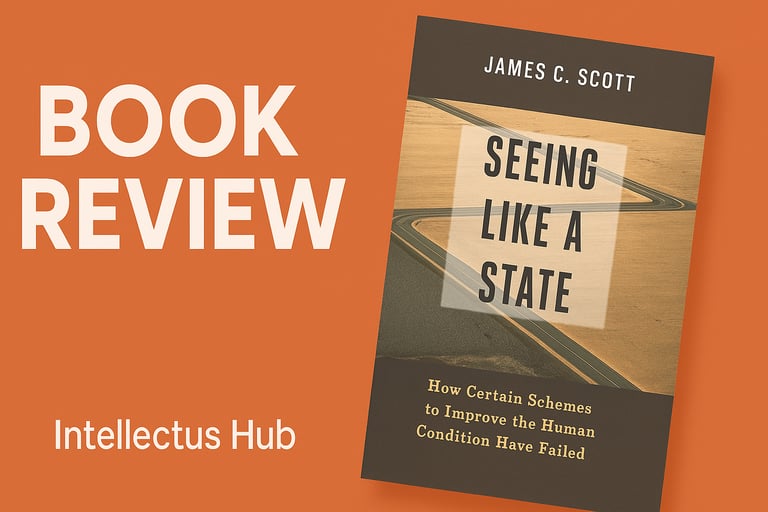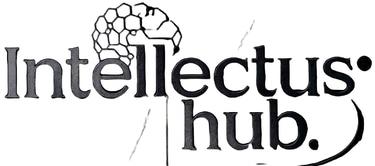James C. Scott, Seeing Like a State: How Certain Schemes to Improve the Human Condition Have Failed
He finds a common pattern: governments try to simplify complex societies to make them “legible,” but this oversimplification destroys the very social systems they hope to improve.
BOOK REVIEW
Monir Hussain ( PhD Scholar JNU)
6/15/20255 min read


James C. Scott’s Seeing Like a State is one of the most influential works in political science, development studies and anthropology. First published in 1998, the book has discussed about state power, planning, development failures, authoritarianism and the importance of local knowledge. Scott’s primary concern is: Why do large, ambitious, well-intended government schemes fail in disastrous ways? To answer this, he examines several major twentieth-century experiments—collectivisation in the Soviet Union, the Great Leap Forward in China, Tanzania’s villagization programme, planned cities like Brasília and Chandigarh, and scientific forestry in Germany. Across these diverse cases, he finds a common pattern: governments try to simplify complex societies to make them “legible,” but this oversimplification destroys the very social systems they hope to improve.
Overview of the Argument
Scott argues that many modern states develop an identical way of seeing the world, that privileges order, classification, measurement and control. He calls this process “legibility.” It is the attempt to turn messy, diverse human lives into neat, standardised forms that can be counted, taxed, governed or reorganised. Examples include the imposition of permanent surnames, standardised land records, uniform city plans, cadastral surveys, population registers, and centralised administrative systems.
On the surface, these look innocent or even beneficial. But Scott warns that when legibility is combined with a high-modernist ideology, an extreme faith in science, technology, and centralised planning, states start to believe they can redesign entire societies from above. High modernism, according to him, is not science itself, but an ideology that assumes experts know best, that society can be rebuilt on rational principles and that tradition, local customs and everyday knowledge are obstacles.
Scott further argues that these high-modernist dreams become dangerous when backed by an authoritarian state capable of enforcing them, and when civil society is too weak to resist. In such cases, planners push grand schemes onto real people without understanding how they live. For Scott, the failures of collectivised agriculture, forced resettlement and rigidly planned cities all stem from the same flawed logic: an attempt to treat human beings as predictable units in a technical system.
Key Concepts
Legibility
Legibility is the idea that states prefer simplified models of reality over reality itself. For example, a state may care only about how much timber a forest can produce, ignoring the social, ecological and cultural relationships that make the forest a living system. This “thin” model becomes the basis for policy, leading to the destruction of complex ecosystems.
High Modernism
High modernism is a belief that science and reason can solve all social problems. It produces confidence in large-scale industrial agriculture, planned cities and social engineering. Scott links this ideology to figures like Le Corbusier (urban planning) and Lenin (political revolution) by showing how they imagined society as something that could be carefully designed like a machine.
Authoritarian Power
When high-modernist visions are supported by states willing to use coercion, they can override public resistance. Historical crises like wars, revolutions, colonialism and economic depressions may enable such intervention.
Weak Civil Society
If ordinary people lack institutions to resist or negotiate, they become passive recipients of the plan. This leads to large scale social experiments with little accountability.
Metis
To counter high modernist arrogance, Scott introduces metis, a Greek word for practical, context-specific, experience-based knowledge. Metis includes farmers’ understanding of soil, urban residents’ use of informal networks or craftsmen’s embodied skills. Scott argues that complex social systems survive because of metis, which experts underestimate or ignore.
Strengths of the Book
Powerful Diagnosis of Development Failures
One of the book’s major strengths is its ability to connect failures in different historical settings to the same underlying logic. Scott’s explanation for why state projects fail is original, persuasive and widely applicable. His detailed case studies, from scientific forestry to Tanzania’s ujamaa villages, illustrate the consequences of imposing rigid schemes on complex realities.
Grounded in Real Historical Evidence
Scott draws on historical research. His account of scientific forestry shows how German foresters redesigned forests to maximise timber production but unknowingly destroyed soil quality, biodiversity and long-term sustainability. His discussion of Soviet collectivisation reveals how bureaucratic targets ignored real farming conditions. These examples help the reader understand how abstract plans become harmful when applied mechanically.
Humanising Ordinary People
Scott’s respect for everyday knowledge is one of the book’s most appealing aspects. He shows that ordinary citizens like peasants, workers, migrants and local communities are not irrational or primitive. They own valuable knowledge that experts fail to see. This perspective challenges the elitism of technocratic development and advocates for democratic participation.
Theoretical Contribution
The concepts of legibility and metis have become main tools in social science. They help scholars study how states interact with society, how planning works, and why many well-intentioned reforms go wrong.
Relevance Beyond the 20th Century
Although Scott focuses on the 1900s, his arguments apply to contemporary issues such as:
Smart cities
Digital surveillance
Aadhaar and biometric IDs
Agrarian reforms
Mega-projects and infrastructure corridors
Climate engineering
His warnings about simplification and overconfidence are highly relevant.
Criticisms and Limitations
Romanticising the Local
Scott praises local knowledge, but he acknowledges that traditions can also be oppressive with mindsets like caste, patriarchy or local hierarchies. Yet he does not explore this tension deeply. Sometimes, state intervention is necessary to end practices such as bonded labour or child marriage. His preference for metis risks idealising the local.
One sided portrayal of state planning
Scott highlights state failures more than successes. But large scale state interventions have also achieved major progress, including:
vaccination campaigns
eradication of diseases
mass literacy programs
public housing
railways and road networks
welfare systems
These do not fit neatly into his model of failure, and his framework underplays their achievements.
Not all planning requires authoritarianism
Scott’s argument depends heavily on the idea that planning becomes dangerous when backed by coercive states. However, many democratic societies engage in planning with consultation, negotiation, and feedback. Planning itself is not the problem; the manner of planning is.
Limited solutions
While Scott excels in critique, he offers fewer practical alternatives. His emphasis on flexibility and local participation is valuable but underdeveloped. Readers may wonder: How should modern states balance expertise and local knowledge? Scott does not provide a clear institutional framework.
Overgeneralising historical examples
Although Scott’s case studies are compelling, they vary in:
political context
levels of violence
objectives
scale
economic conditions
By emphasising similarity, he sometimes oversimplifies differences.
Contemporary Relevance
Seeing Like a State is more relevant today than ever. Modern states increasingly rely on:
big data
algorithmic governance
standardised metrics
biometric identification
centralised welfare databases
predictive policing
These tools improve efficiency but also risk oversimplifying lives into digital categories. Scott’s warning is prompt: when technology and planning ignore human complexity, they can create new forms of exclusion, vulnerability and control.
Similarly, environmental policies that treat nature as a set of measurable units such as carbon credits, forest cover targets or monocultural plantations, they reflect the same logic that Scott criticises in scientific forestry. The book’s ecological insights align with modern sustainability debates.
In urban planning, the trend toward smart cities aligns with high-modernist beliefs in order, efficiency, and technological control. Scott’s critique suggests that cities flourish not because of perfect planning but because of spontaneous, diverse, and flexible interactions among people.
Balanced Conclusion
Seeing Like a State is an important and thought-provoking book that offers an honest critique of how modern states think and act. Scott forces us to confront the dangers of excessive simplification, blind faith in technology and self-confident planning that ignores local realities. His concept of legibility is a valuable framework for understanding state power and his defence of metis shows the intelligence embedded in everyday life.
At the same time, the book must be read with caution. Scott sometimes romanticises local practices, underestimates the achievements of state planning, and offers limited guidance for building better institutions. Still, his critique is not anti state; it is a warning against developmental arrogance.
A good society needs both knowledge from above and knowledge from below. Real development must be flexible, participatory, and respectful of human complexity.
Monir Hussain is a PhD Scholar at the Centre for the Study of Law and Governance, Jawaharlal Nehru University. His research focuses on the intersections of law, governance, and public policy, with a particular interest in issues of social justice and institutional reform.
